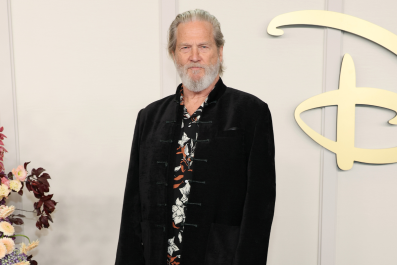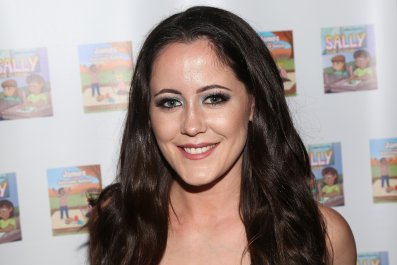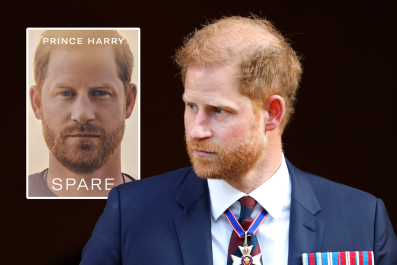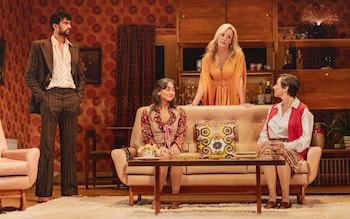Despite being the frequent target of scathing reviews by critics, Emily in Paris, Netflix's frothy comedy-drama set in the French capital, has gone on to be a titan of the streaming platform. Its success has drawn fans worldwide, like Amelia Fry, to emulate the lifestyle of its titular character, Emily, an American woman who works in social media marketing in Paris—but what is it like being the "real life" Emily in Paris?
The series, the brainchild of Sex and The City's Darren Star, follows a 20-something American marketing executive's escapades as she by chance lands temporary employment in Paris, at a French agency that her Chicago-based firm has acquired. The show, fronted by British-American Lily Collins, has been described as an embodiment of the "go girl, give us nothing meme," as Emily and her coworkers and friends drive up repetitive, low-stakes storylines in the glamorous corner of Paris that the affluent posse flounces around in.
Fry, 22, adores the show, and as a social-media-savvy expat based in Paris, she has been dubbed by her followers and friends the "real life" Emily in Paris. Fry, who is from the U.K., spoke with Newsweek about how she landed a job at a Parisian marketing firm, and how the series weighs up in providing a fair portrayal of France—in particular, Paris and its people.
"While I love the show, it is not realistic," Fry, who moved to Paris in 2021, a year after the show began airing, told Newsweek. "But I do think that is what makes it so good.
"I don't think that all of the stereotypes about French people are true, that being said, I love Emily's crazy over-the-top Parisian outfits when actually French people are pretty casual," she said.
From College Reject to Parisian Marketer
Fry had moved to Paris to embark on a degree in French studies at the University of London, Institute in Paris. She had previously been rejected from the University of Birmingham in England, and after a short stint as a low-cost carrier air hostess, Fry packed up and left for France to start again. The social media marketing professional who creates content on TikTok for her 16,000-plus followers recently got a full-time job at a French company, while continuing her studies with a master's degree.
Fry had "secretly" applied to the University of London, Institute in Paris' waitlist a few months prior to her acceptance, but, like Lily Collins' Emily, had a boyfriend and a group of friends back home that she was anxious to leave.
"Looking back now it's all so weird," she said. "I truly think that the universe was sending me signs that moving to Paris was what I was meant to do because my rejection from the University of Birmingham pushed me into actually pulling the trigger and deciding to move to France."
Fry, who is celebrating four years in the French capital, said that although the show has its flaws and inaccuracies, and that every native Parisian and expat will have entirely different experiences, it is fine to romanticize daily life in Paris.
"The show is just another reminder that Paris is a super fun city and it's 100 percent OK to romanticize it," she said. "Romanticizing things and being a little bit delusional is literally what got me to this point in my life."
While the show has been largely taken in as a bit of harmless fun or a guilty pleasure to switch on after a hard day at work, two facets of its writing have drawn more serious criticism.
Viewers and critics alike have voiced concern that the show was airing exaggerated and untrue stereotypes about French people and their working culture. The series also came under fire for its negative depiction of Ukranian and Chinese culture, through scenes written for Ashley Park's Mindy, and a recurring character from season two named Petra.
"I know that the show has received backlash for its portrayal of the French office, but I do think that Emily's coworkers are a tad realistic, unfortunately," Fry said. "Although my coworkers are lovely and I genuinely feel so welcome, I'm very lucky.
"Still, in previous jobs and in some of my friends' previous jobs we felt like complete outsiders, especially when you don't smoke because then no one wants to take a break with you!"
The social media marketer said that despite the Netflix hit's glitzy presentation of Parisian life, living in the big city can be "stressful and difficult."
"But I am glad that Emily in Paris is a sort of unrealistic show, it reminds me of how beautiful Paris is and how lucky I am to be there," she said.
Fry admits that her growing social media following and newfound investment into TikTok and Instagram was inspired by none other than Emily herself, who becomes a part-time influencer during the show. She started making short reels about where tourists should visit in Paris after feeling inspired by the show's filming locations and extravagant sets.
"I was actually inspired by the show to romanticize my life in Paris," she said. "Like any big city, it's not always as aesthetic as it seems."
Since building a presence on social media, like Emily, Fry has been busy attending press events and brand functions all around the city that is famed for its fashion, food, art and style. The Netflix series plays on this alluring image, by placing its storylines and characters in the often intertwining worlds of luxury marketing, entertainment, art exhibitions and Michelin-starred restaurants.
"One event was held on a rooftop on Avenue des Champs-Élysées, in the 8th arrondissement, and that was a very pinch-me Emily in Paris moment," she said.
The 8th arrondissement is home to landmarks like the Arc de Triomphe and Place de la Concorde, alongside high-end retail stores and restaurants. A number of Emily in Paris scenes were filmed on-site in the district.
The series became a huge hit in 2020 during the COVID lockdown, catapulting some of its lesser-known cast members and French actors into international stardom—which nowadays comes hand in hand with large social media fame. The show was able to provide those cooped up at home while COVID-19 rates soared with a burst of armchair tourism or upbeat background entertainment. While its figures and viewing rates have started to dwindle, as it rolls out its fourth season, the show has become something of a modern classic and has gained popularity in several countries—perhaps due to the pull of its international cast and Paris' status as an global icon.
While critical reviews of the show's plot and pacing still leave much to be desired, audiences continue to fall prey to the series' escapist allure.
Fry, who has been watching the show since it began airing four years ago, says that she could not wait to start watching the latest installment of season four, which made it onto Netflix on September 12. As she continues to enjoy her Emily in Paris-inspired lifestyle, Fry often surprises herself by how much she can relate to Emily, despite the show's unrealistic flair, she said.
"Thankfully I do speak French but every time I struggle to pronounce a word, I'm a little scared to be 'la plouc'," she said. "La plouc" is a French phrase that is used by Emily's coworkers to refer to her. It translates to "the hick", "hillbilly", or "country bumpkin," and is a way of calling someone cringe-worthy.
Disclaimer: The copyright of this article belongs to the original author. Reposting this article is solely for the purpose of information dissemination and does not constitute any investment advice. If there is any infringement, please contact us immediately. We will make corrections or deletions as necessary. Thank you.




